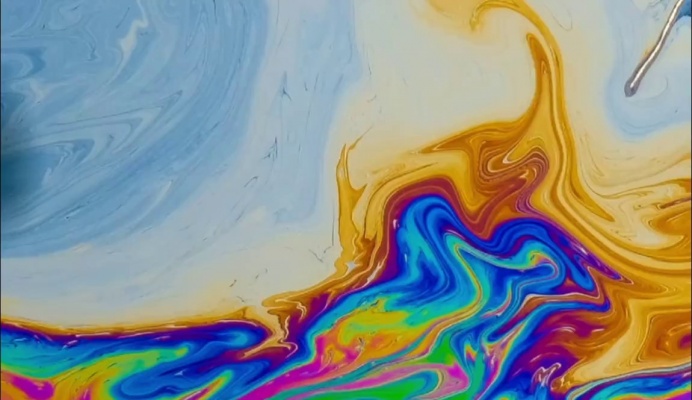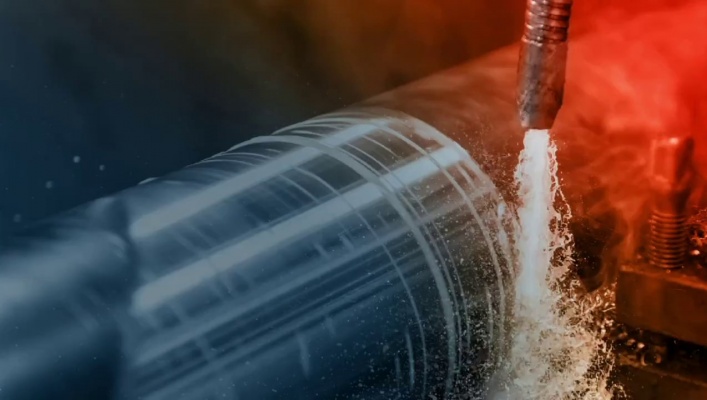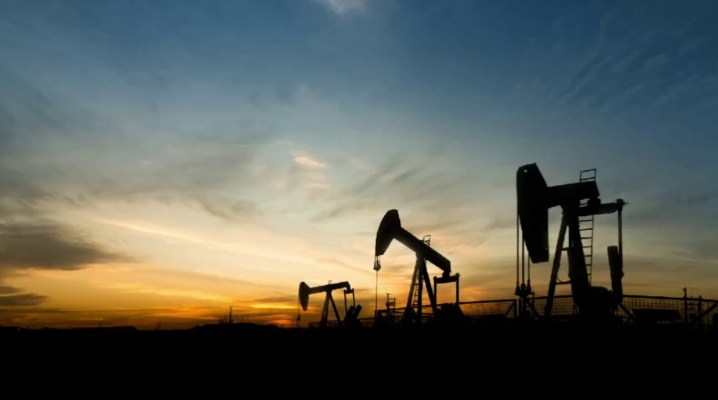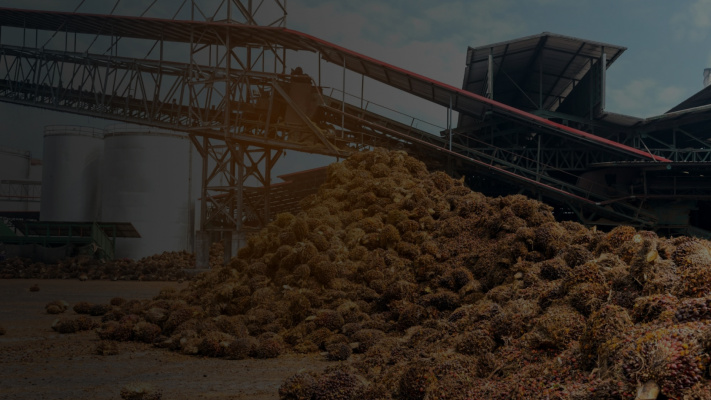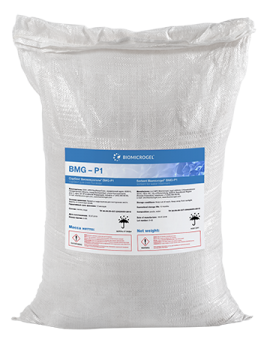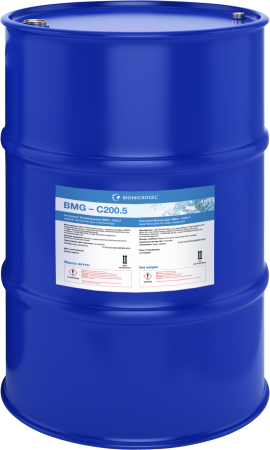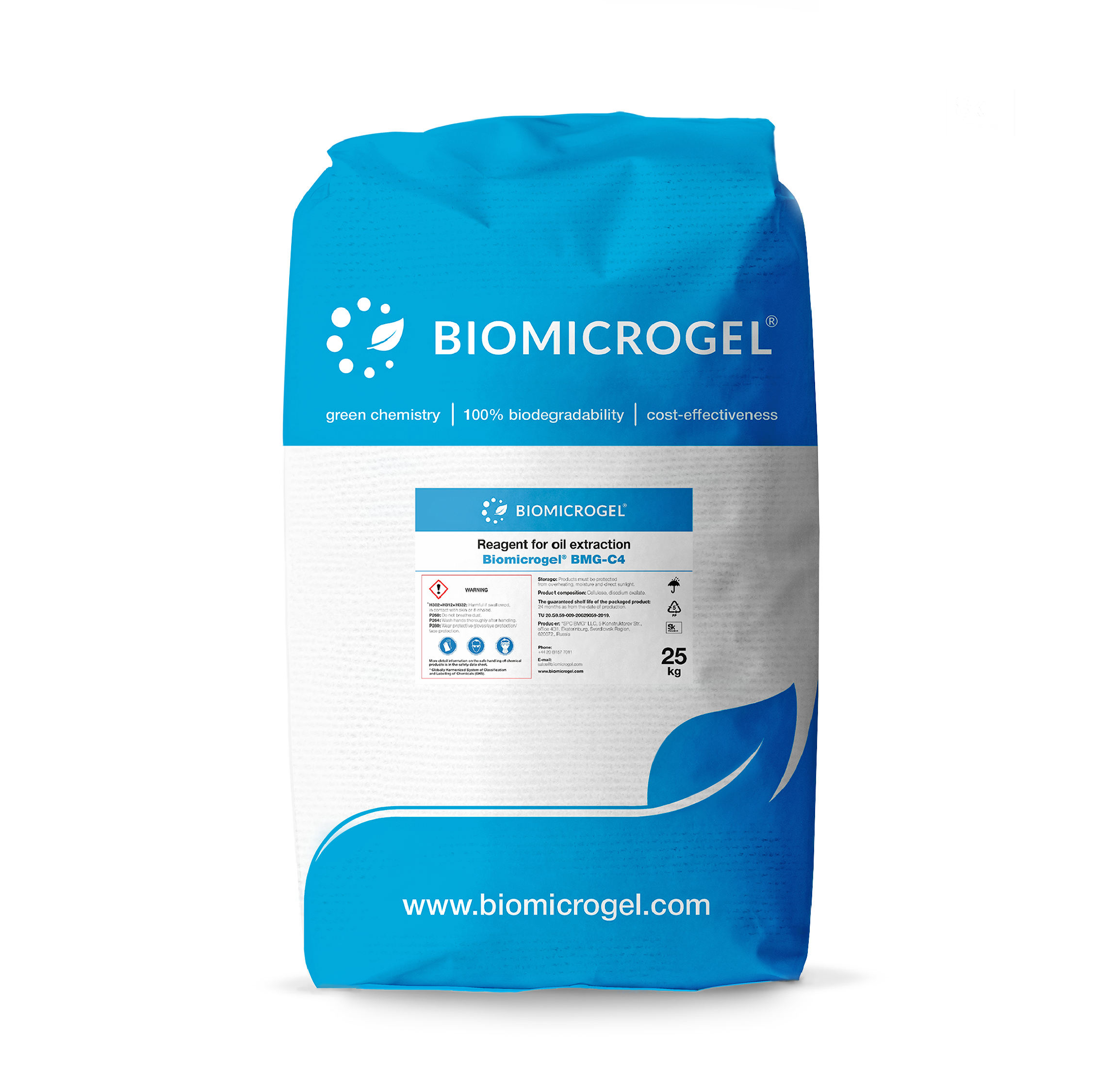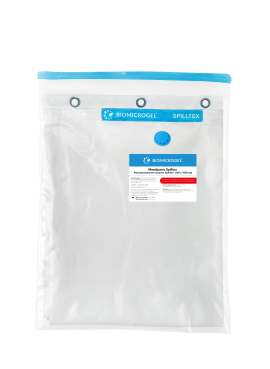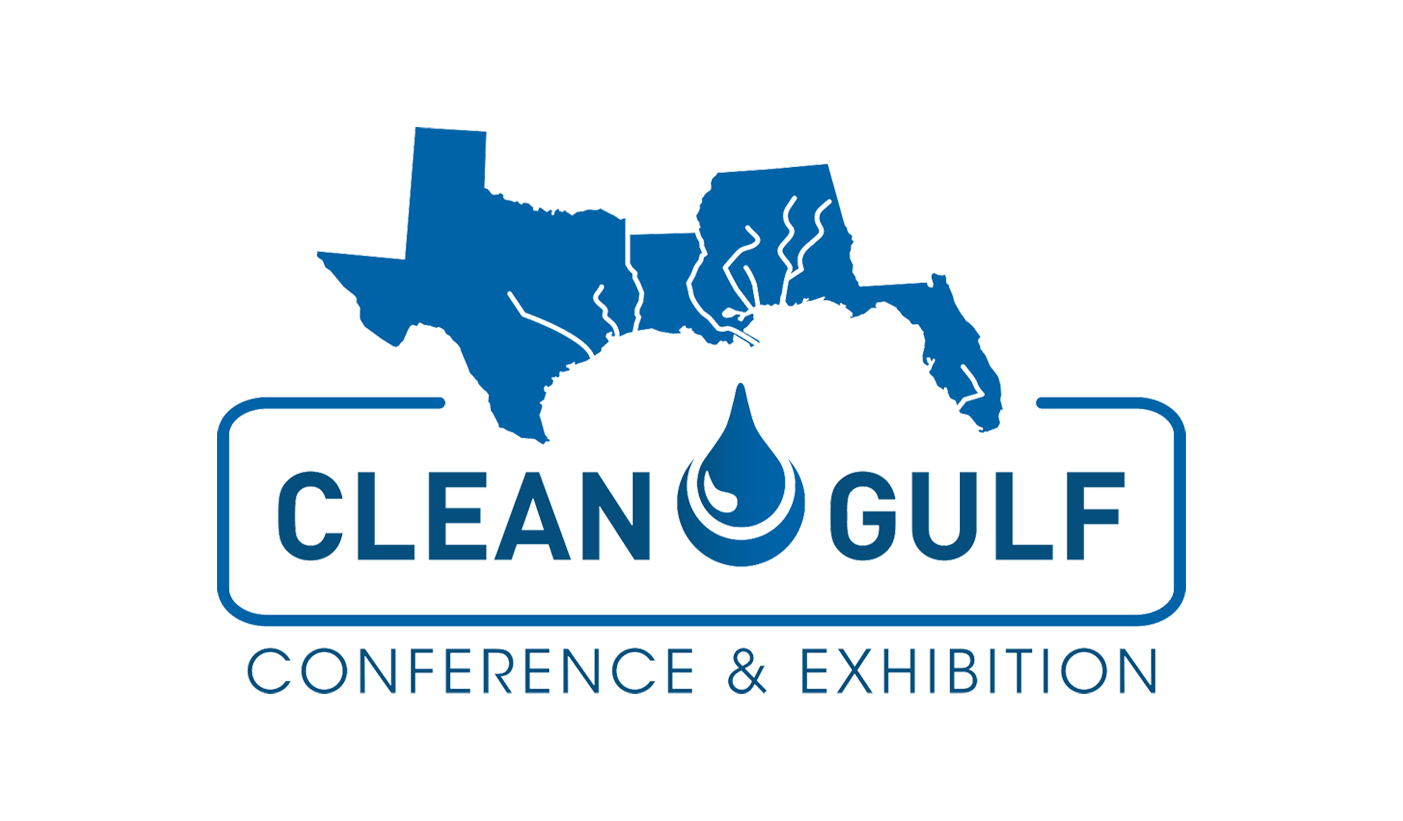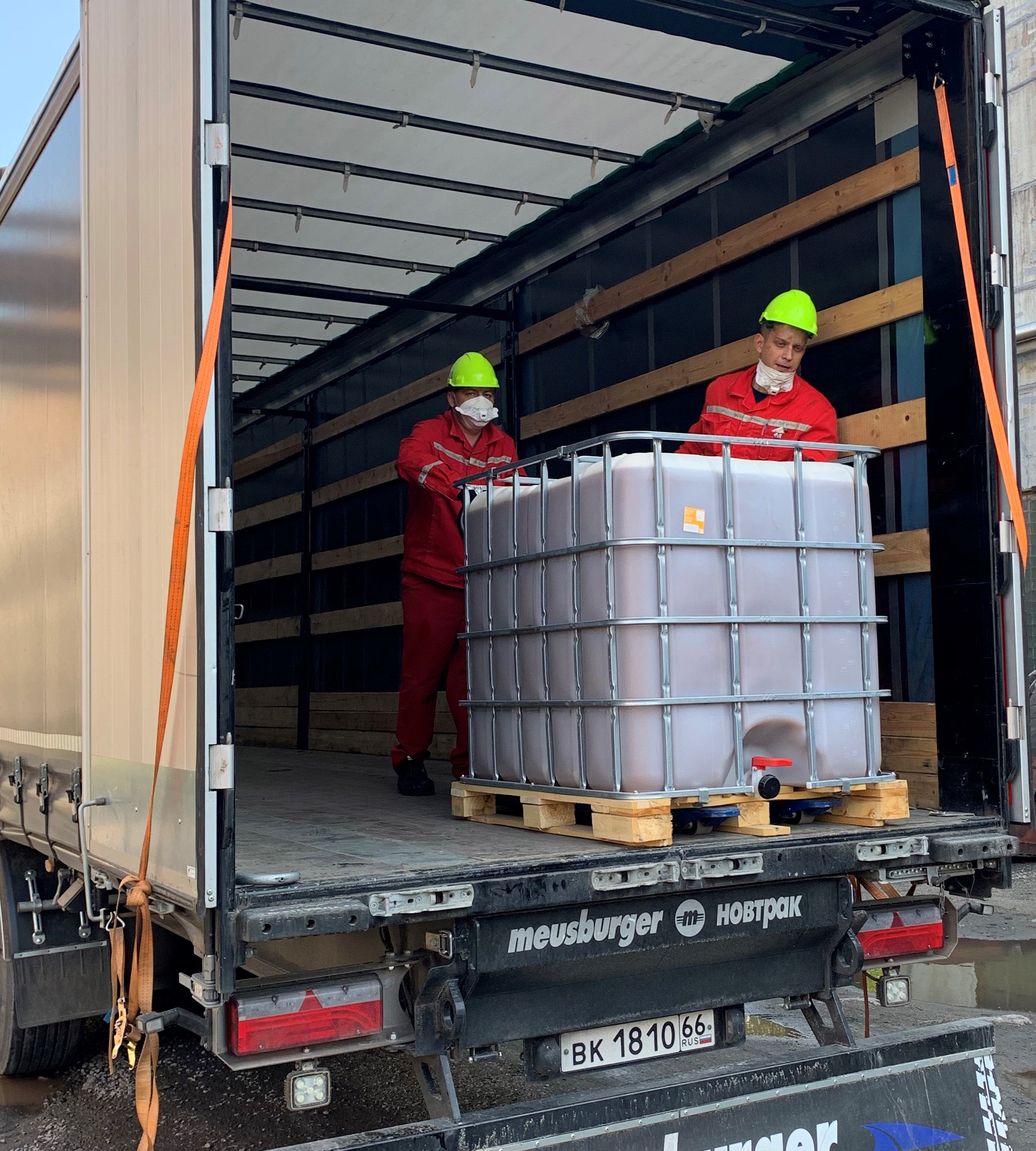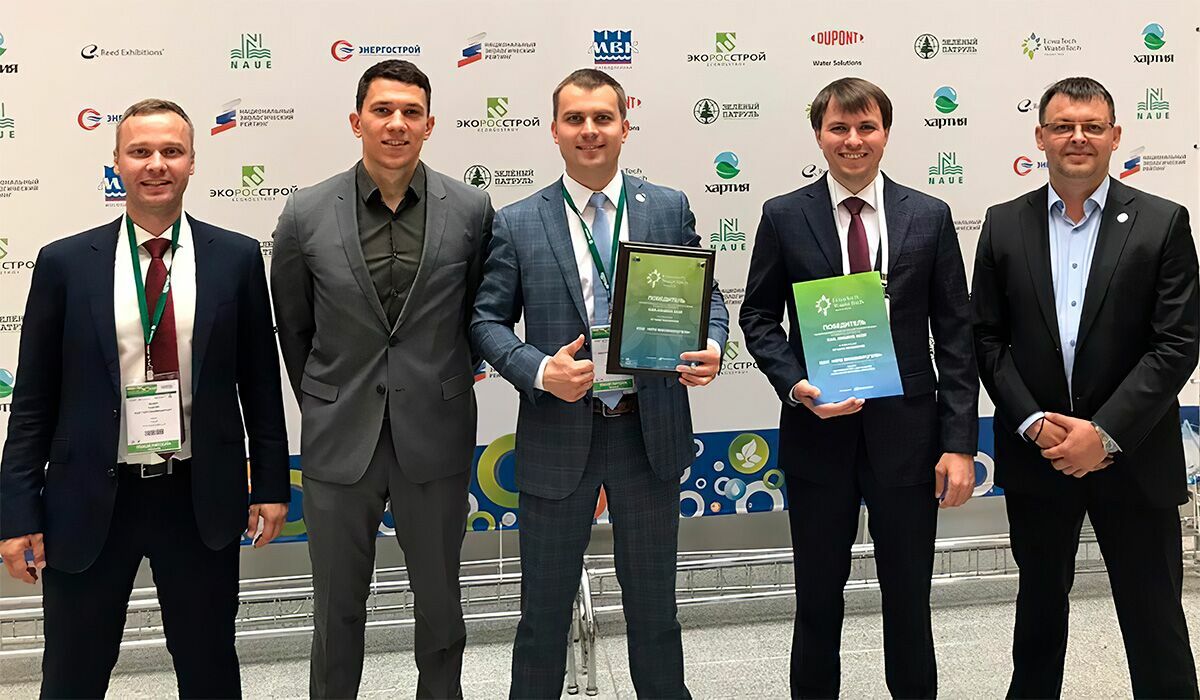Biomicrogels® technology at the World Congress on new technologies "NewTech 2021"
BIOMICROGELS GROUP introduced new wastewater treatment solutions based on revolutionary Biomicrogels® technology at the World Congress on new technologies "NewTech 2021"
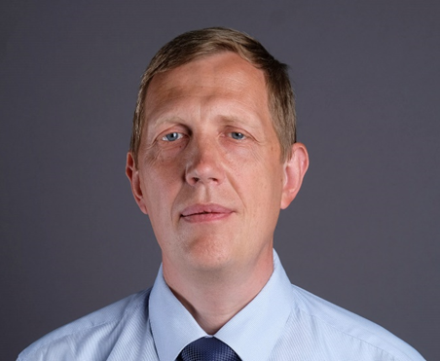
NewTech is one of the leading international annual congresses in the fields of new technologies, which provides excellent opportunities to the scientists, researchers, industrial engineers, and university students to present their research achievements, to exchange their experience and to develop new collaborations and partnerships with experts from various industries.
In his report “Wastewater treatment with Biomicrogels®” Maxim Mironov discussed the new technology of microgels, which are basically colloidal particles ranging in size from 10 to 1000 nm with reversible solubility in water, i.e. they are able to switch from a soluble state to an insoluble state and vice versa depending on environmental conditions: pH, temperature, ionic strength, etc. Biomicrogels cover any oil particles with a film, forming microcapsules and quickly binding them together – in this form, oils can be easily separated from the water, and after this separation, both oil and water can be easily returned to the technological process.
Upon contact with water, Biomicrogels® begin to swell. Thus, when Biomicrogels® get into water and get exposed to various thermodynamic factors, they begin to increase in size dramatically, allowing to use them to collect water-polluting oils. This technology makes it possible to purify water up to 10 times more efficiently and economically than other comparable solutions, while optimizing the process in terms of energy costs and greenhouse gas emissions. This was the key principle behind the Biomicrogels® technology, an innovative development based on biopolymers, which can be used in many areas – in solutions for industrial wastewater treatment from oils, fats and petroleum products, for processing of used cutting fluids in mechanical engineering and metallurgy, to increase the efficiency of vegetable oil recovery in the food industry, as well as for oil spill response.
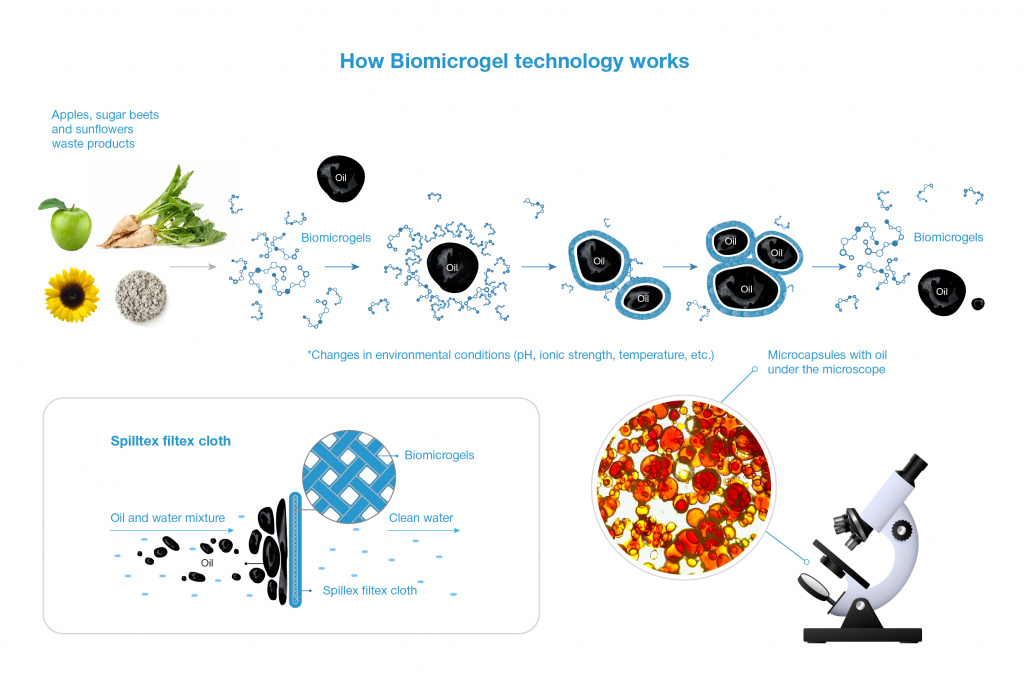
In his speech, Maxim Mironov has also covered a very important feature of the Biomicrogel® technology – its natural availability. The company's research team has been working on improving microgels for a long time, and today microgels can be obtained from natural raw materials, for example, from food industry waste. The biopolymers themselves are completely biodegradable – within a day after applying, they decompose by 98%, and 100% biodegradation occurs in 3 days. Biomicrogels® technology reduces CO2 emissions, since this technology is CO2-neutral and the purification process itself does not require energy-intensive activities or heating. This makes Biomicrogels® a very attractive and cost-effective technology that can be manufactured and applied worldwide.
The main part of Maxim Mironov's speech was devoted to demonstrating the effects of Biomicrogels® on the example of wastewater treatment in the metallurgical and oil industries. The industries are facing the following problems when treating industrial and storm wastewater: insufficient efficiency of existing technologies in separation of oils, fats and petroleum products (with residual content of such products at 30-60 mg/l and more, while the optimal level is 0.05-1 mg/l), high capital expenditures and operating costs, as well as the cost of reagents. For example, the cutting fluid used for industrial rolling mills, has concentration of oil of more than 500 mg per liter before cleaning. The solution based on Biomicrogels® allows to reduce the residual oil content to 1 mg or less per liter of purified water (up to 0.05 mg/l in some cases, when necessary) compared to existing technologies with purification efficiency of up to 80-90 mg/l.

The Biomicrogels® technology can also be used in the treatment of produced water used in oil production, where oil concentration reaches the values of 200 - 1500 mg/l. Produced water can be successfully treated with cellulose-based Biomicrogels® to a final residual oil content of 4–10 mg per liter. This allows this water to be reused in the oil field. Often, when treating oil-field water (produced and formation water), the companies are facing the following three issues: low efficiency of the existing technologies for cleaning formation and associated produced water from oil products (only 50-60 mg/l, while the optimal values are 10-20 mg/l); high capital expenditures and operating costs of existing technologies for treating oily waters and separating water-oil emulsions; and the negative impact of oil and gas sector facilities on the environment.
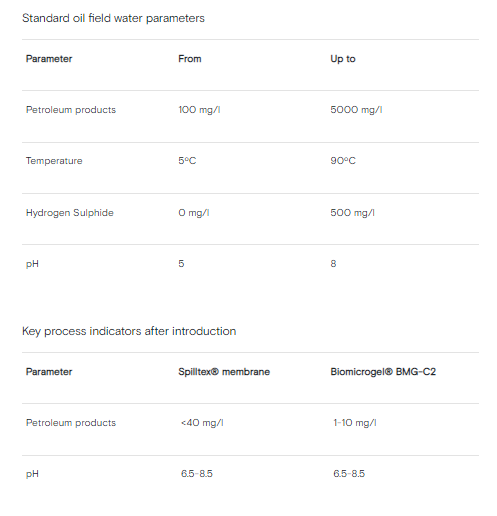
The Biomicrogels® technology has been successfully tested in pilot tests at such enterprises as LUKOIL, Russian Railways, Rusagro and many others.
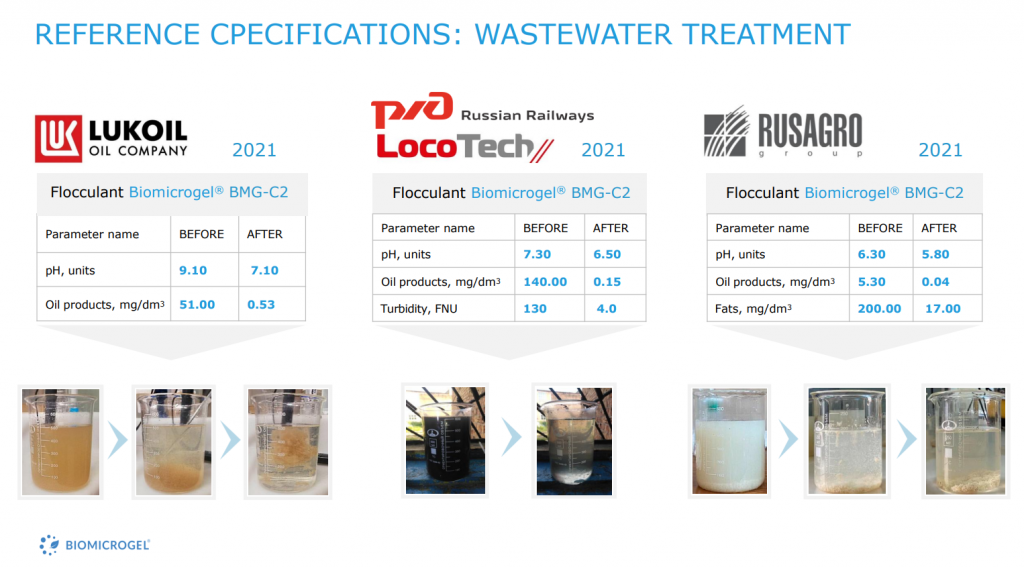
Thus, it becomes clear why Biomicrogels® is a promising technology for the treatment of heavily polluted water and oil-in-water emulsions in the oil industry (refineries and oil producing enterprises), at metallurgical and pipe-rolling plants, machine-building and machine-tool plants, in the food industry, as well as in locomotive depots, at steam stations and hydroelectric power stations.
ABOUT BIOMICROGELS GROUP
The BIOMICROGELS GROUP is an international fast-growing technology group of companies founded in 2012 by a team of engineers who created the groundbreaking Biomicrogels® technology aimed at solving the global challenges of saving fresh water and reducing greenhouse gas emissions. Biomicrogels® are natural biopolymers and their advanced modifications that replace the standard petroleum-based synthetic polymers used today in a wide variety of human activities.
Based on its patented Biomicrogels® technology, the Group has created and has been developing various solutions for industrial wastewater treatment from oils, fats and petroleum products, for processing of used cutting fluids in mechanical engineering and metallurgy, to increase the efficiency of vegetable oil recovery in the food industry, as well as for oil spill response. The company’s products help purify water up to 10 times more efficiently and economically than comparable solutions, while optimizing energy costs and reducing greenhouse gas emissions.
The BIOMICROGELS GROUP includes 4 chemical laboratories, 2 production workshops and more than 120 employees in 5 countries around the world. Today BIOMICROGELS GROUP technology is protected by more than 100 patents in 62 countries, including more than 20 countries in Europe, Russia, USA, Canada, India, China, Southeast Asia and the Persian Gulf. In 2021, G20 members, global experts and investors recognized the high-tech solutions based on the Biomicrogel® technology as the best in the Cleantech category among the most innovative companies representing the G20 countries.
Solutions used
